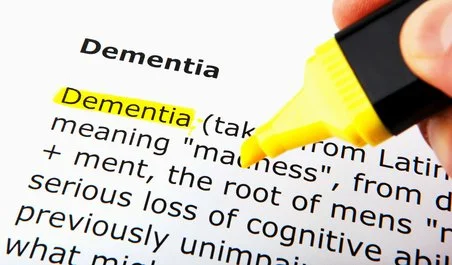There is often confusion about the terms dementia and Alzheimer’s disease. While Alzheimer’s disease is a kind of dementia, they are not interchangeable words.
The simple answer to “what is the difference between Alzheimer’s and Dementia?” is this:
Dementia is not a disease. Alzheimer’s is a disease. Dementia is a symptom of that disease.
Dementia refers to a set of symptoms, not the disease that is causing them. The symptoms include memory loss, poor judgement, difficulties with language and changes in behaviour. When we say that someone “has dementia”, we mean that they are exhibiting a set of symptoms.
By conducting a series of tests, doctors can determine what is causing the dementia, which may or may not be Alzheimer’s disease. While Alzheimer’s is diagnosed in 60-70% of dementia cases, there are other diseases and disorders that also cause dementia, like Parkinson’s disease, dementia with Lewy bodies and vascular dementia. Because it’s the most common cause of dementia, Alzheimer’s disease is commonly equated with the term dementia.


